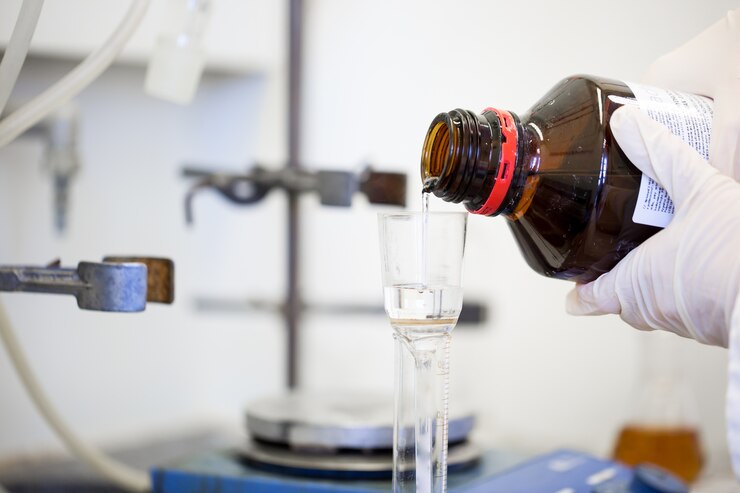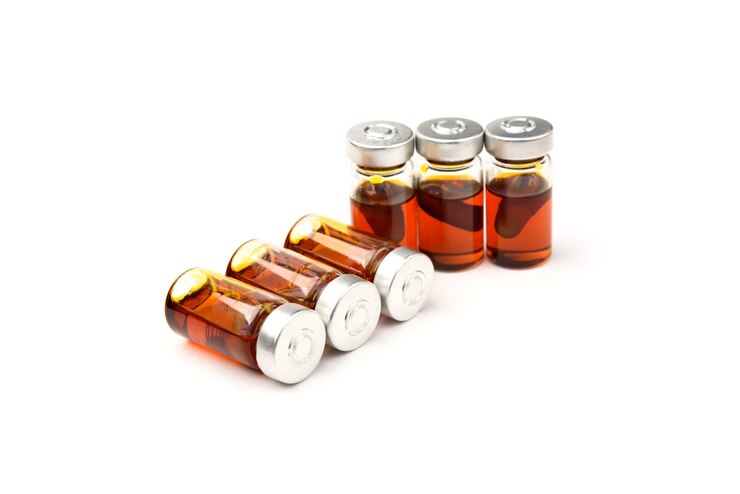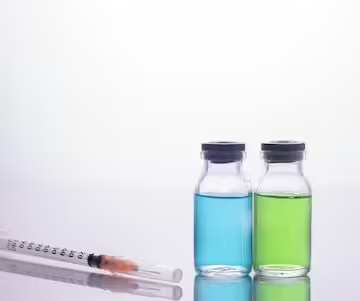10Nov
The Vital Role of Ethanol in Pharmaceuticals

Ethanol, commonly known as ethyl alcohol, is widely recognized as an ingredient in alcoholic beverages, but its uses extend far beyond the realm of refreshment. Ethanol plays an essential role in the pharmaceutical industry as a solvent, preservative, and even as an active ingredient in some medicinal products. From enhancing the effectiveness of certain medications to acting as a key component in hand sanitizers, ethanol’s versatility makes it invaluable in healthcare. In this blog, we’ll explore how ethanol is used in pharmaceuticals and why it remains crucial for safe and effective healthcare products.
Ethanol as a Solvent in Pharmaceuticals
One of ethanol’s primary roles in the pharmaceutical industry is as a solvent. In this context, ethanol serves as a medium for dissolving active ingredients and other compounds, ensuring they are evenly distributed throughout a solution. This is particularly important for medications that contain ingredients that are difficult to dissolve in water alone.
1.In Liquid Medications
Ethanol is used in various liquid formulations, including cough syrups, tinctures, and elixirs, to dissolve medicinal compounds and enhance their absorption in the body. Ethanol’s ability to dissolve both water- and fat-soluble substances allows it to stabilize complex formulations, making it an ideal solvent in many medicines.

2.Injectable and Topical Medications
In injectable and topical medications, ethanol helps in dissolving active ingredients to deliver the intended therapeutic effects effectively. This ensures that medications are easily absorbed through the skin or injected into the bloodstream, enhancing the overall effectiveness of the treatment

3.Sustained-Release Mechanisms
Ethanol is sometimes included in sustained-release formulations, where its evaporative properties can help control the rate at which a medication is absorbed into the body. This is particularly useful for topical applications, where ethanol allows gradual absorption for lasting therapeutic effects.

Ethanol as a Preservative
Ethanol’s antimicrobial properties make it an ideal preservative for pharmaceutical products, preventing the growth of bacteria, fungi, and other microorganisms. This preservation is crucial for liquid medicines, ensuring that they remain safe and effective throughout their shelf life. By inhibiting microbial growth, ethanol also reduces the need for additional chemical preservatives, which can sometimes cause unwanted side effects in patients.
- Extending Shelf Life: Ethanol extends the shelf life of various medications, particularly those in liquid form, such as cough syrups, tinctures, and eye drops. Its preservative qualities help keep these products stable, allowing patients to use them safely over extended periods.
- Reducing Contamination Risks: Ethanol in certain formulations can help prevent contamination, especially in multi-use products, which require a preservative to prevent spoilage and ensure the safety of each dose.
Ethanol as an Active Ingredient in Antiseptics and Sanitizers
Ethanol’s antimicrobial properties also make it effective as an active ingredient in antiseptics and hand sanitizers, particularly those designed to kill a broad spectrum of pathogens. Ethanol-based sanitizers are highly effective against bacteria, viruses, and fungi, making them indispensable in both healthcare settings and everyday hygiene.
- Hand Sanitizers: Ethanol is the primary active ingredient in many hand sanitizers, usually at concentrations of 60-90% for maximum effectiveness. This ethanol concentration ensures rapid and effective microbial killing, providing a quick and convenient way to reduce the spread of infections, especially when soap and water are unavailable.
- Antiseptic Solutions: In healthcare settings, ethanol is frequently used in antiseptic solutions for skin disinfection before surgeries or injections. It is also used in hospital-grade disinfectants to sanitize surfaces and equipment, preventing cross-contamination and helping maintain a sterile environment.
Applications in Drug Delivery and Transdermal Patches
Ethanol plays a crucial role in transdermal patches—those adhesive patches that deliver medication through the skin, such as pain relief or nicotine patches. Ethanol’s volatile properties and its ability to penetrate the skin barrier allow it to act as a vehicle for delivering the active ingredient effectively.
- Enhancing Skin Penetration: Ethanol can alter the permeability of the skin, making it easier for active ingredients to penetrate through the layers of the skin and reach the bloodstream. This makes it an ideal solvent in transdermal drug delivery systems, where it increases the efficacy of the medication and ensures a controlled release.
- Controlled Release: In transdermal patches, ethanol is sometimes combined with other agents to create a controlled release system. This means the active ingredient is released gradually over time, providing sustained therapeutic effects without the need fo
Ethanol as an Extraction Agent for Medicinal Compounds
Ethanol is frequently used as an extraction agent in the preparation of herbal medicines, allowing the active compounds to be isolated from plant materials. This process is commonly used to create tinctures, where medicinal plants are soaked in ethanol to extract their therapeutic properties. The resulting product can then be formulated into liquid medicines, capsules, or other forms.
- Effective Extraction: Ethanol’s ability to extract both water-soluble and fat-soluble compounds makes it ideal for extracting a wide range of medicinal components, from essential oils to alkaloids.
- Concentration and Potency: Ethanol-based extractions are concentrated and potent, meaning that the active compounds are preserved and stabilized, allowing patients to benefit from the full spectrum of the plant’s medicinal properties.
Safety and Regulation of Ethanol in Pharmaceuticals
Ethanol is generally recognized as safe when used in regulated amounts in pharmaceutical products. However, regulatory agencies such as the U.S. Food and Drug Administration (FDA) and European Medicines Agency (EMA) enforce strict guidelines to ensure that ethanol in pharmaceuticals is used safely and effectively.
- Concentration Limits: The amount of ethanol in pharmaceutical products is carefully regulated, with specific concentration limits based on the type of product and the intended use. For example, cough syrups and elixirs typically contain between 5% and 20% ethanol, while topical antiseptics may contain much higher concentrations.
- Warnings and Dosage Controls: Pharmaceutical products containing ethanol often include usage warnings and dosage controls to ensure safe consumption, particularly for children, pregnant women, and those with specific health conditions.
- Ethical and Cultural Considerations: Ethanol use in pharmaceuticals also takes into account cultural and ethical considerations, particularly in products for regions or groups that avoid alcohol for religious or cultural reasons. In such cases, ethanol-free alternatives may be developed to provide similar therapeutic effects without using alcohol.
In Conclusion
Ethanol is far more than a simple ingredient in medicines; it’s a versatile tool that enhances the stability, effectiveness, and safety of pharmaceutical products. From preserving shelf life to enabling controlled drug delivery, ethanol’s unique properties make it indispensable in modern healthcare. While its usage is closely regulated to ensure patient safety, ethanol continues to be a valuable and trusted component across a wide range of medicines and medical applications.
As research and technology in pharmaceutical science advance, ethanol’s applications will likely continue to expand, offering new possibilities in drug formulation and delivery. Its role in healthcare underscores the profound impact that even common substances can have when applied with precision and care, making ethanol a quiet yet essential contributor to our health and wellness.
Recent Posts
- Ethanol Screen Wash: A Winter Driving Essential
- Ethanol in Industrial Chemical Manufacturing: A Versatile Building Block for Innovation
- Ethanol as a Biofuel: Fueling the Future with Renewable Energy
- The Role of Ethanol as a Preserving Agent: Enhancing Shelf Life and Safety
- Ethanol in Paints and Varnishes: Enhancing Performance and Sustainability